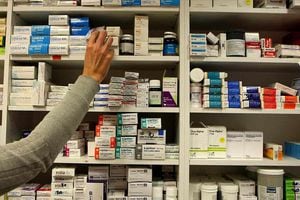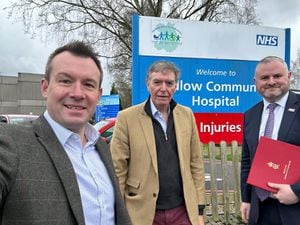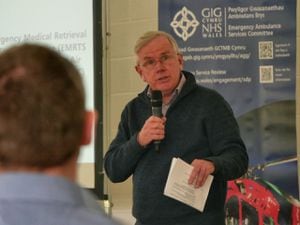Pharmacies across Midlands offering new service for minor illnesses
More than 1,600 pharmacies in the Midlands have been offering a new consultation service for people with minor illnesses for the first time this winter.

They are among more than 10,500 across the country who have been taking referrals from the Community Pharmacy Consultation Service (CPCS) since October.
It is part of an expansion to include the option to arrange a same-day consultation with a highly-trained pharmacist through NHS 111.
Trained call advisors, supported by doctors, nurses and other health professionals, are already able to book those who need it into urgent treatment centres, dispatch an ambulance or schedule an appointment with a GP or their team.
So far, around 1,600 pharmacies across the Midlands have signed up, with more likely to join them.
The Midlands has been piloting the new service since November 2018, but since the launch in October, 16,197 referrals have been made to community pharmacies across the region.
The public, particularly those most vulnerable to falling seriously ill with a winter respiratory ailment, are urged to seek advice from a local pharmacist at the first sign of illness and go to their local pharmacist.
Advice from a community pharmacist can help people manage their illness and prevent it becoming more serious, which will help to relieve pressure on busy A&Es as well as freeing up thousands of GP appointments.
Potential
The new role for pharmacists sees them delivering another plank of the NHS Long Term Plan, with the public urged to make better use of the community pharmacists’ expertise closer to home.
As well as offering medicines advice, pharmacists are offering consultations on minor conditions such as earache, eye infections, sore throats, coughs and colds, and general pain or swelling to body and limbs.
Patients referred by NHS 111 will have a clinical assessment and conversation in the privacy of a consultation room and the pharmacist will carry out a physical examination and recommend the best treatment for some common conditions.
If the patient’s symptoms suggest it is more serious, the pharmacist will help get them an urgent GP appointment if needed.
The pharmacist may need to make a record of the outcome and send it to the patient’s GP.
Joe Lunn, head of primary care at NHS England and NHS Improvement – Midlands, said: “This represents a step-change in the way people are able to use their community pharmacists, unlocking the full potential of pharmacy and giving it a role at the front of primary care.
"As well as offering people professional advice and care close to home, this move will speed up access to excellent care for patients, help to free up GP time and reduce non-emergency A&E visits.”
Further extensions of the Community Pharmacy Consultation Service are currently being piloted – including referral from general practices and NHS 111 online.





